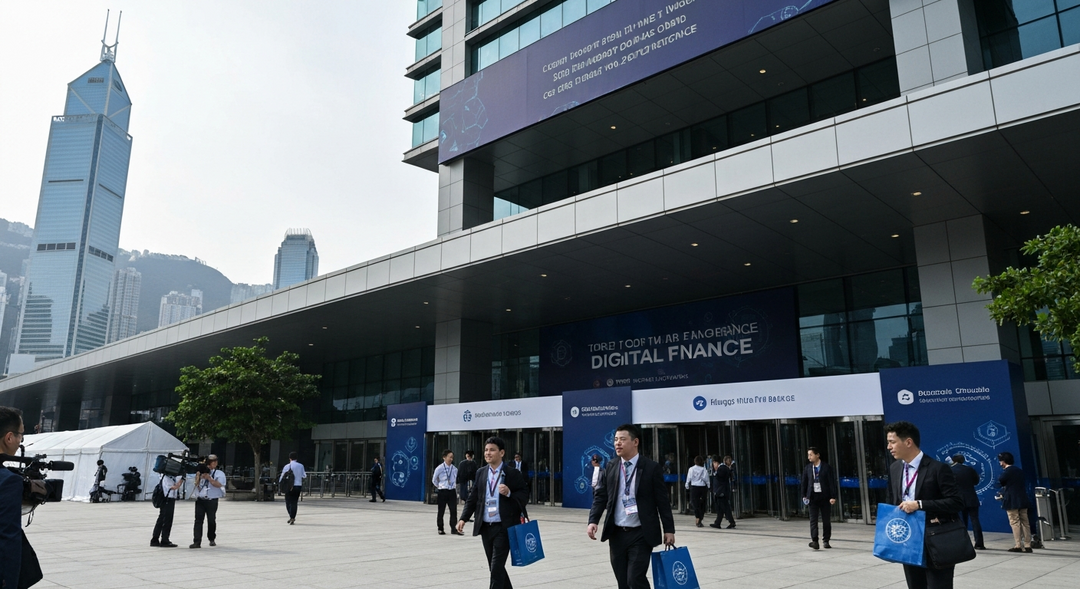Chipmakers are sidestepping fresh tariffs set by the White House. Semiconductor industry leaders have been granted significant exemptions, shaping market movement in Asia.
The recent trade policy targeted imported chips, yet major Bitcoin mining equipment manufacturers have avoided any major disruption. Thanks to these exemptions, TSMC and Samsung, the two largest fabricators for Bitcoin mining hardware, are shielded from new duties that would have otherwise increased operational costs.
Taiwanese government officials confirmed that TSMC’s plant in Phoenix allows the company to bypass the hefty tariff rates. Samsung received a similar exemption due to its large presence in Texas, supporting the American production of highly specialized chips.
Both TSMC and Samsung are responsible for producing application specific integrated circuits that fuel prominent Bitcoin mining companies. Firms including Bitmain, Canaan, and Bitdeer depend on these chips to maintain their competitiveness in global digital currency extraction.
A spokesperson from Bitdeer stated that their partnership with TSMC will keep them unaffected by the trade measures. Looking ahead, Bitdeer has plans to launch a United States-based factory for miner assembly, aiming to support domestic demand and reduce further exposure to international trade shifts.
Confidence across Asian financial centers is evident. The TAIEX, which represents leading Taiwanese stocks, is poised for a solid rally. TSMC stocks, already surging, are pushing towards record high territory. This momentum sends a broader signal that chip sector players feel secure, not threatened by the evolving American trade landscape.
Even companies in jurisdictions directly targeted by tariffs are charting positive territory. Shanghai’s SMIC, which produces similar chips but operates without American manufacturing ties, has managed to outperform the Hang Seng index. Investors sense that, for now, broader macroeconomic optimism outweighs the potential burden of import taxes.
As digital currency headlines continue to dominate, Bitcoin has recently faced a period of moderation after an extraordinary price run. Following its climb to an all-time high, Bitcoin now trades with slightly decreased momentum. Industry analysts suggest investors could experience a phase of adjustment or mild decline as short-term sentiment cools.
Ethereum, meanwhile, finds itself in the midst of renewed interest. According to blockchain analytics data, some capital has rotated away from Solana and entered the Ethereum ecosystem. The ETH to BTC exchange rate has pierced a notable moving average for the first time in years. This renewed enthusiasm is complemented by peak network activity and open interest, signaling that speculation and real utility on Ethereum are both on the rise.
In traditional finance, gold has experienced a moderate uptick, driven by traders evaluating the indirect impacts of American tariffs on energy trade, particularly involving India and Russian oil. This steady gain in gold prices reflects investors’ desire for stability during policy shifts.
Japan’s equities opened with mixed results, though the Nikkei 225 managed a strong rise. Gains were led by sectors linked to electronics and manufacturing, likely buoyed by confidence in the region’s supply chains and exemptions secured by key chip firms.
In the United States, the S&P 500 rose as Apple’s announcement of a substantial manufacturing investment created waves throughout the sector. This commitment to domestic production reassures markets that American tech companies are still betting big on homegrown manufacturing, despite ongoing international trade disputes.
Elsewhere in the digital asset world, regulatory developments have been making headlines. The legal confrontation between the Securities and Exchange Commission and Ripple has drawn to a close, ending years of uncertainty for the XRP digital asset community. Meanwhile, stablecoin provider Paxos has resolved charges related to Binance with a settlement, ensuring business continuity and signaling regulatory clarity.
In light of shifting trade policies and evolving market structures, companies exploring strategies to maximize returns are increasingly drawn to new solutions for digital currency acquisition. For those looking for modern alternatives to traditional mining setups, it is timely to Start Cloud Mining to access global bitcoin infrastructure without logistical limitations.
Conclusion
As trade relationships adjust in response to geopolitical decision-making, major technology manufacturers with American investments stand well-prepared. Their proactive steps and broad operational footprints allow them to navigate changes with minimal disruption, keeping innovation in semiconductor and digital asset industries on track.
The financial landscape in Asia and beyond remains robust, with enthusiasm visible across equity markets, digital currency segments, and commodities. Those embracing flexible business models and new mining solutions will continue to capture unique opportunities as the broader global economy evolves.

Ewan’s fascination with cryptocurrency started through his curiosity about innovative technologies reshaping the financial world. Over the past four years, he has specialized in cloud mining and crypto asset management, diving deep into mining contracts, profitability analysis, and emerging trends. Ewan is dedicated to helping readers understand the technical and economic aspects of crypto mining, making complex information accessible and actionable.




